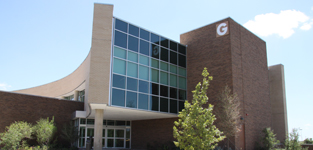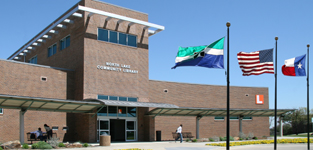- Home
- About Us

The Central Campus of North Lake College sits on 276 acres in the Las Colinas area of Irving at 5001 North MacArthur Boulevard. - Admissions & Registration
North Lake College's open door admissions policy ensures that every person who can benefit from higher education has the opportunity to enroll. Applying for admission online makes getting started easy. North Lake also offers online tuition payment for both credit and continuing education courses and online registration for current students who meet certain criteria.

Located in the lobby of the A-Building, college staff are available at the Central Campus Welcome Desk to answer your questions. - Academics
The opportunities for learning at North Lake College are as diverse as our student body. Students seeking an affordable start toward a bachelor's degree, career and technical skills, personal enrichment, or lifelong learning can pursue their learning goals here.

Complete our transferable core curriculum, one of our degree or certificate programs, or take courses for personal enrichment. - Continuing Education
North Lake College Continuing Education offers a variety of personal and professional development courses to fit your learning needs, whether you want to learn a new job skill, enhance your career, or just want to have fun. Our instructors are industry professionals who bring real world experience and hands on skills into the classroom.
 Students register for Continuing Education courses in the LEED-certified Workforce Development Center on the Central Campus.
Students register for Continuing Education courses in the LEED-certified Workforce Development Center on the Central Campus. - Library
The North Lake College Library provides convenient access to a variety of high quality library services, including extensive collections and information resources to support the curriculum, research, intellectual, and creative needs of the college's students, faculty, and staff.

Library collections support the college curriculum and also include a selection of fiction, travel guides, periodicals and more. - Services & Resources
North Lake provides a variety of range of programs and services to help students reach their academic goals and to enhance their personal, intellectual and social development.

Select books for classes, as well as school supplies and gift items at Follett Bookstore, located on the first floor of K building (K201). - Student Life

Get involved in college life by participating in athletics, student government, or one of our many student clubs and organizations.





 Facebook
Facebook Twitter
Twitter Flickr
Flickr YouTube
YouTube Contact
Contact